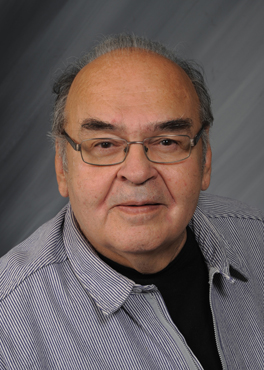With less that two weeks left until the Nov. 4 general election, Cordova-born Robert “Moose” Henrichs is busy spreading the word that he is running as a candidate for Senate District P. Also running is Sen. Gary Stevens, R-Kodiak.
“Things are going well,” Henrichs, who describes himself as a “conservative Democrat,” told the Homer News by phone Sunday.
He just finished a visit to Stevens’ home turf in Kodiak to attend a U.S. Coast Guard appreciation dinner.
“What a lot of people don’t realize is that my father came to Alaska in the Coast Guard,” said Henrichs of his father, the late Hollis Henrichs, who settled in Cordova and was that city’s postmaster for 35 years. His mother, Rose Metvetnekoff, was born in Nuchek.
In addition to attending the Coast Guard function, the visit to Kodiak was an opportunity for Henrichs to leave his mark. “I think (Stevens) was shocked when he returned to Kodiak because I had signs at the airport,” said Henrichs.
It also was an opportunity for the two candidates to meet.
“I’ve got nothing against Gary. I think he’s a good man, but I think we need to ratchet back on the spending or we’re going to go broke,” said Henrichs.
This isn’t the first election the two candidates have run against each other. In the 2012 general election, Henrichs and Stevens vied for the District R Senate seat. Stevens won with 69.76 percent of the vote and Henrichs drew 29.79 percent.
A former Cordova City Council member, Henrichs has served as president of the Native Village of Eyak for 20 years. He is a founding director of the Prince William Sound Aquaculture Corporation, a director of Chugachmiut and a former chairman of Chugach Alaska. He serves as a director of the Alaska Native Tribal Health Consortium, is chairman of the Alaska Native Medical Center Joint Operating Board of Directors and on the Southeast Alaska Subsistence Regional Advisory Council.
In his candidate statement, Henrichs notes his opposition to gun control and tax breaks for oil companies, and is clear about his unwillingness to risk Bristol Bay salmon for a mine. He supports less government in favor of contracting with the private sector to provide better services at a reduced cost.
Summing up his campaign, Henrichs stands for a “simpler, more efficient state government, responsibly funding education statewide, stronger family values and living within our means.”
Since 1959, Henrichs has been involved in Alaska’s commercial fishing industry.
“Seiner. Gillnetter. I had two crab boats in the Bering Sea. A tender. I’ve done all kinds of fishing and still fish,” said Henrichs, who sees that experience as valuable in the state’s capital. “We need some people with fishermen’s common sense in Juneau.”
He believes the state has failed to communicate effectively with Alaska’s Native population regarding fish and game, which has, in turn, resulted in Natives seeking support from the federal government. Henrichs supports open communication with Natives regarding managing these resources, without input from the federal government.
When it comes to education, Henrichs is a strong supporter of early education and contends Alaska’s children have taken a backseat to the “common distractions” of disputes over contracts, compensation and saving schools. He believes parents should have the deciding voice when it comes to their children’s education, the state has the responsibility to fully fund it, and too often that responsibility is left in the hands of local communities.
“Alaska’s education costs are some of the highest in the nation, yet we rank last in the fourth-grade reading scores and rank 39th out of the 50 states overall,” Henrichs says on his website.
He also is a strong supporter of educational programs that support the majority of students that do not continue to college after graduating from high school.
Henrichs is critical of the state’s “major spending problem” that includes spending 2.5 times more than is collected in revenue. On his website, he cites overspending as proof “that the crop of people we have sent to Juneau to represent us need to pack their bags and make way for real commonsense and thrift-minded leadership.”
He believes if the state continues in the financial direction is it headed, within five years it will be forced to make a decision: legislate a state income tax or invade permanent fund dividends. While Senate Bill 21, Gov. Parnell’s restructuring of taxes on the oil and gas industry, promised to increase revenues in the state, Henrichs said it did little of what was promised.
“The Russians sold their interest in Alaska to the United States in 1867 and in 2014 the oil companies bought Alaska and, hell, I didn’t know it was for sale,” Henrichs told the Homer News.
He compared the “obscene wealth” of oil and gas companies to residents of rural Alaska “who will probably see $1,000 heating bills this winter. Something is drastically wrong and we need to change it,” he said.
This week Henrichs is attending the Alaska Federation of Natives annual meeting in Anchorage, but plans to make a visit to the southern Kenai Peninsula before Nov. 4.
“I’ve spent quite a bit of time in Homer. I’ve fished halibut out of there for years,” he said. “I always liked Homer.”
McKibben Jackinsky can be reached at mckibben.jackinsky@homernews.com.


